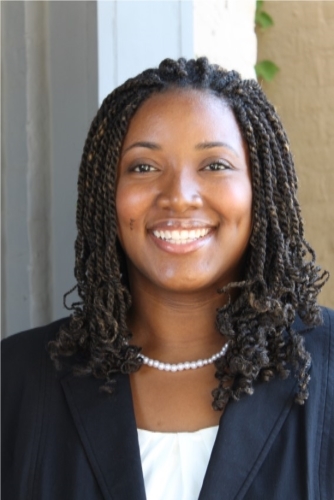Ph.D. students win national fellowships for work on education, health care


Shantel Crosby Deirdre Shires
Two doctoral students in the Wayne State School of Social Work have received prestigious national fellowships to support their dissertation research on educational and health outcomes of high-risk individuals.
Shantel Crosby has received a 2015-16 Doctoral Fellowship from the Council on Social Work Education's Minority Fellowship Program (MFP), which is funded by the Substance Abuse and Mental Health Services Administration and supports minority social work doctoral students who aspire to leadership roles in the area of mental health and substance abuse disorders. The MFP selected Crosby on the strength of her three-paper dissertation project, which entails an examination of a trauma-informed teaching intervention for court-involved youth that is being implemented at the all-girl Clara B. Ford Academy in Dearborn Heights.
Deirdre Shires has been selected as a 2015-16 CSWE/NASW Foundation Social Work HEALS Doctoral Fellow. A joint project of the Council on Social Work Education and the National Association of Social Workers, Social Work HEALS aims to develop health care social work leaders who pursue system-level changes, promote prevention and wellness, and address structural racism within social institutions. For her dissertation, Shires will survey primary care providers at Henry Ford Health System about their cultural and clinical preparedness to offer both routine and transition care to transgender patients as well as interview key health system stakeholders about macro-level barriers to providing sensitive and appropriate care for this population
Crosby, who has co-authored more than 14 research articles, either accepted or under review, contributed to book chapters and policy briefs, and presented on her research to national audiences, says the traditional authoritarian paradigm of education that emphasis teachers' power and control is not suited to youth who have experienced violence, neglect, abandonment or other types of trauma. These youth, who experience extremely high rates of suspension and expulsion, appear to benefit from the trauma-informed approach Clara B. Ford Academy uses to encourage an effective social-emotional learning environment, emphasize self-regulation and social skills, and encourage responsible choices.
According to Crosby's dissertation advisor, Assistant Social Work Professor Angelique Day, Crosby's work is important because the child welfare and juvenile justice systems historically have not prioritized the education well-being of youth in their care.
"There is a plethora of research out there that documents the poor outcomes of these youth, but little has been done to train teachers or provide schools with tools to successfully work with these youth to maximize their well-being," notes Day, a national expert on foster youth and policy advisor to the state and federal governments. "Shantel's research will inform educators' understanding of the way that students with a history of trauma learn and behave in the classroom."
Shires, whose published articles on health care disparities and discrimination among transgender individuals have garnered national media attention, became concerned about this population while working as a health services coordinator at Affirmations Gay and Lesbian Community Center in Ferndale. Now a project manager at Henry Ford Health System's Center for Health Policy and Health Services Research, Shires said achieving better health outcomes for transgender individuals begins with understanding physicians' preparedness and willingness to work with this underserved population as well as how health system norms, policies, and resources may influence the environment in which physicians provide this care.
"Transgender patients often report having bad experiences when they try to obtain health care services," said Shires, noting that a national study found nearly one quarter of transgender individuals reported being denied health care services outright, and nearly half of transgender patients who did receive care provided no or limited information on their gender identity status out of fear. "However, we know very little from the clinician perspective. We need to understand what barriers they face so we can support them in providing high-quality care to their transgender patients."
Associate Professor Kim Jaffee, who has coauthored articles with Shires and mentors her on her dissertation, noted that the federal government's Healthy People 2020 initiative and the Affordable Care Act of 2010 have provided recommendations for eliminating health disparities among transgender populations.
"Given this national investment to address transgender inequity in health care, the research proposed by Deirdre is relevant to effectively collaborating and intervening with providers to develop ways to foster a reduction in disparities in transgender health and well-being," Jaffee said. "Her research will advance national health care policy by strengthening the quality of care for a marginalized and underserved gender minority group."
For more information on the WSU School of Social Work's doctoral program, visit: http://socialwork.wayne.edu/phd/index.php